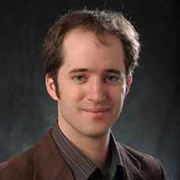A .gov website belongs to an official government organization in the United States.
A lock () or https:// means you've safely connected to the .gov website. Share sensitive information only on official, secure websites.

In this talk I will present recent work from my group and collaborators that touches on the topics of improving our understanding of sources of air pollutants, and relating specific sources to their impacts on human health through long-term exposure at the urban to national scales. The projects focus on the health impacts of PM2.5, O3 and NO2, and a common theme throughout the projects is the use of remote sensing data to constrain both the inputs to the air quality simulations as well as our estimates of exposure. In particular, I'll present work using NH3 remote sensing from the CrIS instrument to better understand sources of ammonia in the US and Europe. I'll also present results on source apportionment modeling using adjoint sensitivity analysis of air pollution health impacts in G20 countries globally, across different countries in Europe, and in source regions around 14 US cities.
Daven Henze is a Professor of Mechanical Engineering at the University of Colorado Boulder. He received his bachelor's degrees in Chemistry and Chemical Engineering at the University of Washington, and his PhD in Chemical Engineering from CalTech in 2007. He did his postdoctoral work at Columbia University before joining the faculty at CU Boulder in 2009. He currently serves as the S. P. Chip and Lori Johnson Faculty Fellow and as the Mechanical Engineering department's Associate Chair, and the Chair of the Graduate Program.
ALL Seminar attendees agree not to cite, quote, copy, or distribute material presented without the explicit written consent of the seminar presenter. Any opinions expressed in this seminar are those of the speaker alone and do not necessarily reflect the opinions of NOAA or CSL.